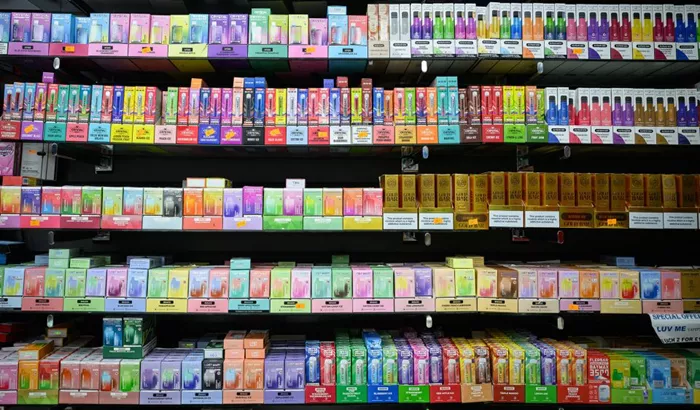The U.S. is facing a shortage of popular vape products like Geek Bar, partly due to tariffs on Chinese imports and increased seizures of unauthorized e-cigarettes. These factors have slowed shipments from China, the world’s largest vape producer.
Data shows that vape shipments from China to the U.S. dropped sharply in May compared to last year. The U.S. Food and Drug Administration (FDA) recorded only 71 shipments of e-cigarettes or vapes from China between May 1 and May 28, down from nearly 1,200 in the same period last year.
Geek Bar, a flavored vape brand not authorized for sale in the U.S., had been widely available despite import restrictions. However, supply has now tightened. One vape retailer said a supplier who used to receive 100 boxes of Geek Bar weekly now gets only 10. Another supplier has limited purchases to five boxes per order due to rising costs and limited availability.
The supply issues stem from tariffs imposed by former President Donald Trump, which currently stand at 30%, down from a peak of 145% in April. Alongside tariffs, the FDA has increased seizures of unauthorized vapes, further restricting supply.
A regional Geek Bar wholesaler informed customers in April that production cuts and rising costs would reduce supply in the near term. Vape distributors expect prices to rise because of tariffs. One distributor said, “With tariffs, it’ll definitely go up.”
Despite higher prices, demand is expected to stay strong. Consumers addicted to nicotine tend to keep buying even if costs increase. Geek Bar vapes, now priced around $20, could still sell well with a $5 price hike, according to a distributor.
Most vapes sold in the U.S. are made in Shenzhen, China. Some factories produce licensed products for tobacco companies like Japan Tobacco International. Others supply unregulated devices that U.S. authorities say are illegal to import or sell.
Illicit vape producers often try to avoid tariffs by mislabeling shipments or declaring false origins, such as Indonesia or Mexico. Smuggling vapes disguised as shoes or toys is also common.
Geek Bar was the top unauthorized vape brand in the U.S. last year, accounting for about 25% of vape sales tracked by market research firm Circana. Unauthorized vapes now make up roughly 70% of U.S. vape sales, challenging big tobacco companies like Altria and British American Tobacco (BAT).
The tariffs and stricter enforcement have led to panic buying, higher shipping costs, and supply risks. The FDA has seized large shipments of unauthorized vapes, including a major seizure in Chicago in February. New FDA commissioner Marty Makary has promised tougher crackdowns.
Altria’s CEO Billy Gifford expressed hope that tariffs would lead to stronger border enforcement. The ongoing trade tensions have also reduced China-U.S. air and sea freight capacity, further limiting vape imports.
Read more:


